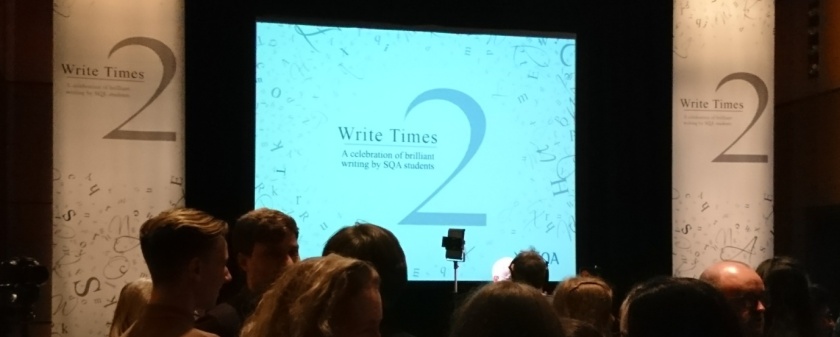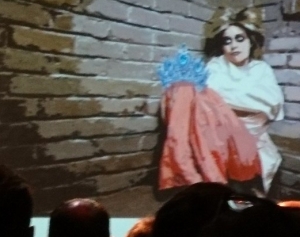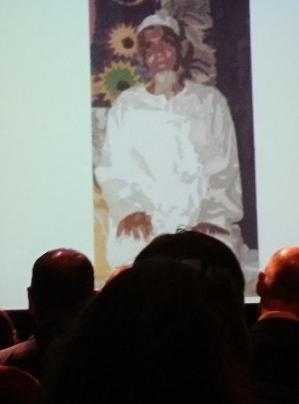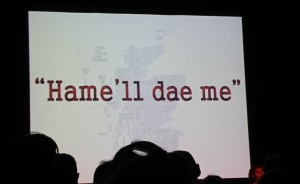The SQA recently published Write Times 2 to celebrate the writing of pupils in National Qualifications. Leanne Welsh went along to the launch event to represent SATE.

Opportunities are often taken to celebrate the success of pupils involved in physical activities such as sporting achievements and practical accomplishments; however there are not always opportunities to celebrate the written accomplishments of young people in Scotland – until now.
Write Times 2 is a collection of fantastic creative writing produced by SQA candidates over the past academic year. The book includes: fiction, non-fiction, poetry and drama. The pupils in this collection of writing have used their talent to share compelling personal experiences, as well as thought-provoking pieces on fairy-tales with a twist. The work in this collection is inspirational and a free copy will be sent to every school in Scotland!
The SQA Write Times 2 launch was a fantastic night filled with fascinating readings and performances from pupils across Scotland. We were introduced to the event by John Loughton who is the chief executive officer of leadership training company Dare2Lead and a motivational speaker. John stressed the importance of putting young people’s voice at the heart of what we do as they are, after all, the future. Their views need to be taken into consideration and prioritised as they will be the ones who will inspire positive change for future generations to come.
The Deputy First Minister, John Swinney, followed on from John’s speech and he also emphasised young people’s shrewd awareness of current world affairs. Some of the pupils in this collection have chosen to write about these concerns and the affect they have on them personally. This is one reason why this collection is so inspiring. The collection clarifies what our young people are capable of. They are often more aware of what is going on than we are because, as we get older, we are often too wrapped up in our own world to see the bigger picture. The pupils show maturity when dealing with the major issues of today and there is no doubt that this collection reflects the talent and ambition of the young people in Scotland.

In addition to these fantastic speeches, we were also lucky enough to hear some of the pupils read their work at the launch event. Hannah, from the High School of Dundee, started the readings with her creative story: ‘Gone Mad’. This piece is a fairy-tale with a twist and tells the story of what really happened after Cinderella met her Fairy Godmother and animal friends. Hannah’s use of language in this piece is superb. An example of language is shown through her description of a hut as ‘showing the scars and wounds left by the forest and its harsh climate’. She also adds humour to her story and, again, shows young people’s awareness of the issues around them with the lines: ‘Well ladies. Never invest all your happiness in happy ever after – develop your own independence’. ‘Gone Mad’ is an enjoyable and, at times, dark piece and I’m sure it will inspire many pupils in Scotland to have the confidence to adapt another fairy-tale or story.

Another amazing piece of writing came in the form of a poem by Mahee from Kelvinside Academy. Mahee’s poem, titled ‘My Grandfather’, describes his experience of being a first generation Scot and the difficulties that can derive from the confluence of two cultures. One of the many lines that stood out to me was: ‘he holds my soft hands in his calloused paws’. Mahee’s use of language clearly shows the contrast between his roots and the life he lives now. Many pupils have shied away from poetry in the past, however I hope that Mahee’s piece will inspire many to take on the challenge and create their own poems in order to express their own thoughts and ideas.

The final reading of the night came from Michelle, from Eastwood High School, and this was a performance to remember. Michelle created a non-fiction piece titled: ‘Nyumbani Means Home’. The audience were lucky enough to witness this piece as a theatrical adaption. Tram Direct Theatre supported Michelle, and her co-star Asante, with the performance and it was spectacular. Michelle took on the role of herself in Scotland, and Asante performed as Michelle from Kenya. In this piece Michelle explores her experience of both Scottish and Kenyan culture and the potential for conflicting feelings to arise. We were treated to Kenyan culture and ceilidh dancing as Michelle tried to decide where she really belonged. However, by the end of the performance, Michelle stressed the importance of being an individual with the powerful line: ‘I’m Michelle Mwende Nyawira Musyoka, daughter of all counties and citizen to none.’ The performance was truly inspirational and Michelle’s piece can be read in the non-fiction section of Write Times 2.
The launch event filled me with ideas to share with my own classes and I’m sure pupils, from across Scotland, will read these pieces and be inspired to create something that is just as powerful and thought-provoking. I was enthused, but not surprised, by the confidence and talent showcased at this event. I’m sure that all the young people in this collection will go on to inspire the next generation of pupils to be ambitious and original.


